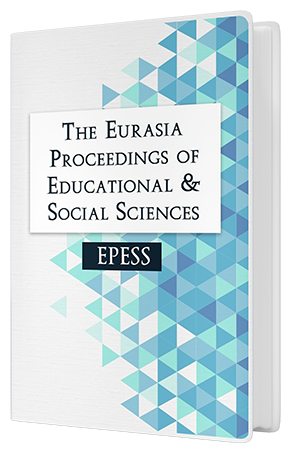The Opinions of Middle School Students, High School Students, PreService Science Teachers and Science Teachers about Robotic-Assisted Practices in Teaching Renewable Energy Sources
Keywords:
Robotics, Renewable energy resources, Lego® mindstorms EV3 educatin kit, Lego® renewable energy kit, Middle school students, High school students, Teacher candidates, Science teachersAbstract
In this research, it is aimed to determine views related about training renewable energy source assisted by robotic education to middle school students, high school students, candidate science teachers and science teachers. In the study, this subject has been tried to teach by using the Lego® Mindstorms EV3 Training Kit and the Lego® Renewable Energy Kit. In the study one group pretest-posttest experimental design was used. The study group of study consists of a total of eighty people including twenty middle school students, twenty high school students, twenty preservice science teachers and twenty science teachers. The training has been proceeded on four stages through eighty hours. Middle school students were trained about robotics in the first stage, high school students were trained in the second stage, preservice science teachers were trained in the third stage and science teachers were trained in the last stage, respectively. In the research, semi-structured interview form has been used for defining opinions and suggestions of middle school students, high school students, candidate science teachers and science teachers about lego assisted training. The data obtained from the research has been analyzed by SPSS packet program. In the light of this study, it is defined how middle school students, high school students, candidate science teachers and science teachers perceived this education with legos as a technique.Downloads
Published
Issue
Section
License
Copyright (c) 2018 The Eurasia Proceedings of Educational and Social Sciences

This work is licensed under a Creative Commons Attribution-NonCommercial-ShareAlike 4.0 International License.
The articles may be used for research, teaching, and private study purposes. Any substantial or systematic reproduction, redistribution, reselling, loan, sub-licensing, systematic supply, or distribution in any form to anyone is expressly forbidden. Authors alone are responsible for the contents of their articles. The journal owns the copyright of the articles. The publisher shall not be liable for any loss, actions, claims, proceedings, demand, or costs or damages whatsoever or howsoever caused arising directly or indirectly in connection with or arising out of the use of the research material. All authors are requested to disclose any actual or potential conflict of interest including any financial, personal or other relationships with other people or organizations regarding the submitted work.




